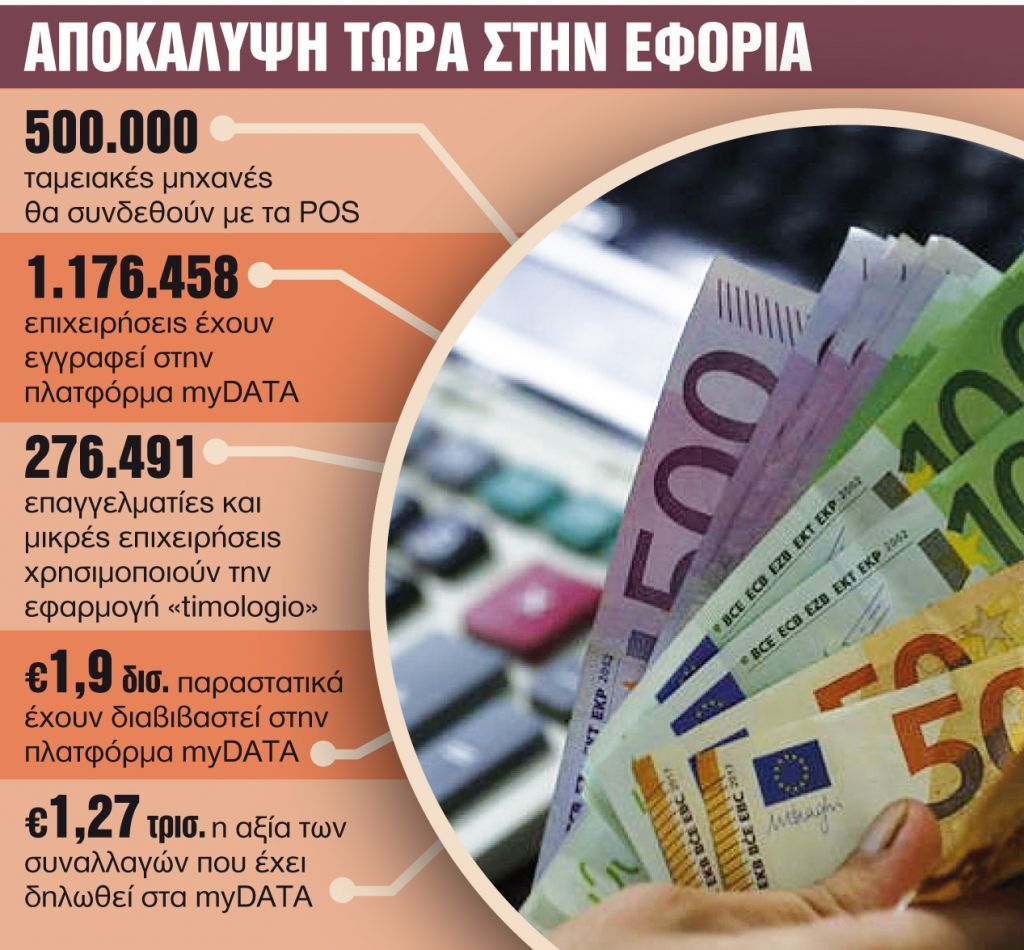This summer, a POS cash register interface will prevent income hiding and VAT theft by monitoring professional and business transactions online.
In the fight against tax evasion, new types of “weapons” are being introduced. In the summer, at the peak of the tourist flow, cash registers will become “one system”, which will allow the tax control mechanism know in real time the amount and time of issuance of each retail sales receiptas well as the method of payment by the client.
In the same time a plan is underway to mandate the installation of POS in virtually all industries of freelancers and enterprises, since there are currently dozens of occupational categories such as gyms, tutoring centers, parking lots, cinemas, theaters, car rentals, kiosks, taxis, etc. exempted from the obligation to have POS terminals.
It is assumed that the interconnection of cash registers with POS will “close the gaps” and stop tax evasion, as there will be easier to identify cases of concealment of the turnover of funds and non-refund of VAT.
Tax audits have shown that many businesses do not issue a retail check when dealing with their customers on credit or debit cards. That is, while the POS accepts the transaction, the seller either does not break the cashier’s check at all, or issues a check, but with a smaller amount.
Once the new control system is ready for implementation, cash registers and POS stop working autonomously for debit transactions. And this means that for bank card payments, the payment amount will not be allowed to be entered into the POS until the check corresponding to the purchase amount is punched at the checkout.
With the new system, the transaction will be initiated by the retail cash register and the operator (employee or merchant) will select “payment by card”, and the cashier will send a corresponding request to the POS-card payment system. The system will then acknowledge the receipt of the request to the tax engine and pause it to receive the result after the POS terminal connects to the bank or the corresponding payment service and receives the result, i.e. whether the transaction is approved or not.
Along with the payment approval, the system will also send the basic transaction data (such as transaction number, confirmation code, etc.) as well as the data for issuing a check from FIM (which will confirm receipt of the final result).
ABOUT temporary failure of the cash register or POS must be reported on the esend platform, which will give the command to activate the possibility of entering the payment amount in the case of debit transactions. The activation of the POS key function due to a failure of the infrastructure for entering the payment amount in the case of debit transactions has a maximum duration of 12 hours and is allowed no more than once every three months.
Problems with the POS keyboard due to the fact that the cash register does not enter the payment amount in the case of debit transactions, for all responsible businesses has a maximum duration of 24 hours. For businesses operating in villages of up to 500 inhabitants and on islands of less than 3100 inhabitants, the EFTPOS keypad unlock has a maximum duration of 5 days unless it is a tourist location. Anyway the obligation to transfer this data to the myDATA digital platform is not canceled.
The project to interface cash registers with POS and link them to AADE is funded by the Recovery Fund and is estimated to limit cases of tax evasion and VAT loss to 3 billion euros per year.







More Stories
Greek products on their way to France
Reduced fees for POS transactions, limited bank fees
Easter 2024: more expensive than travel, more modest table